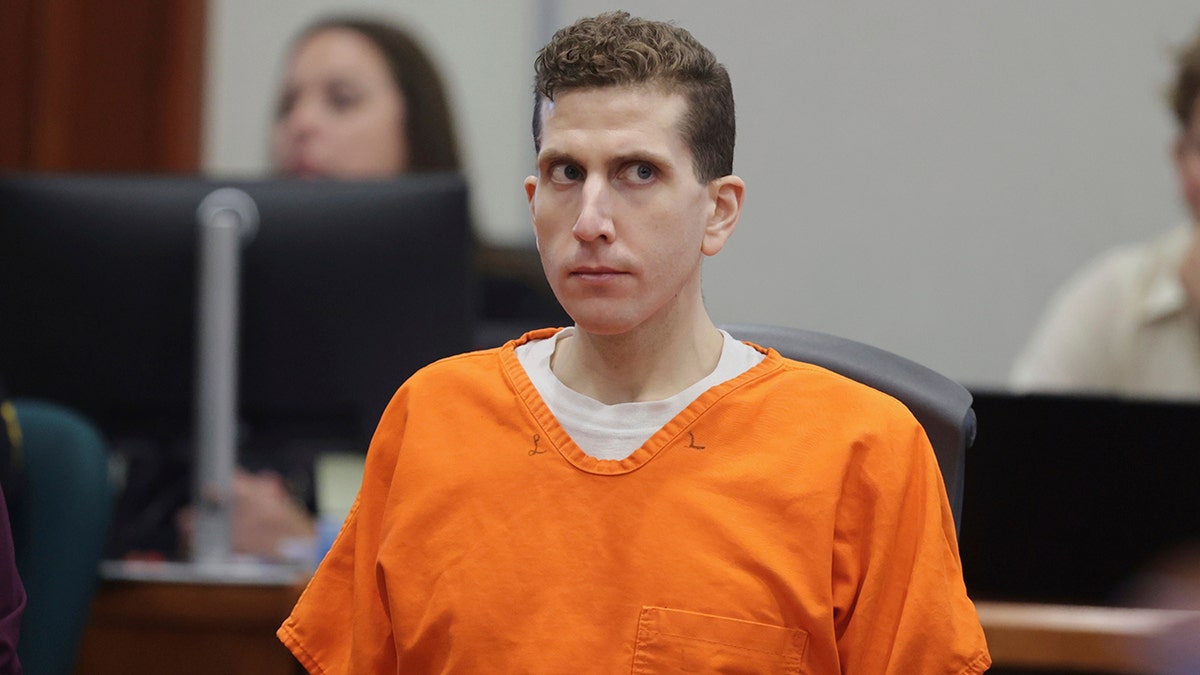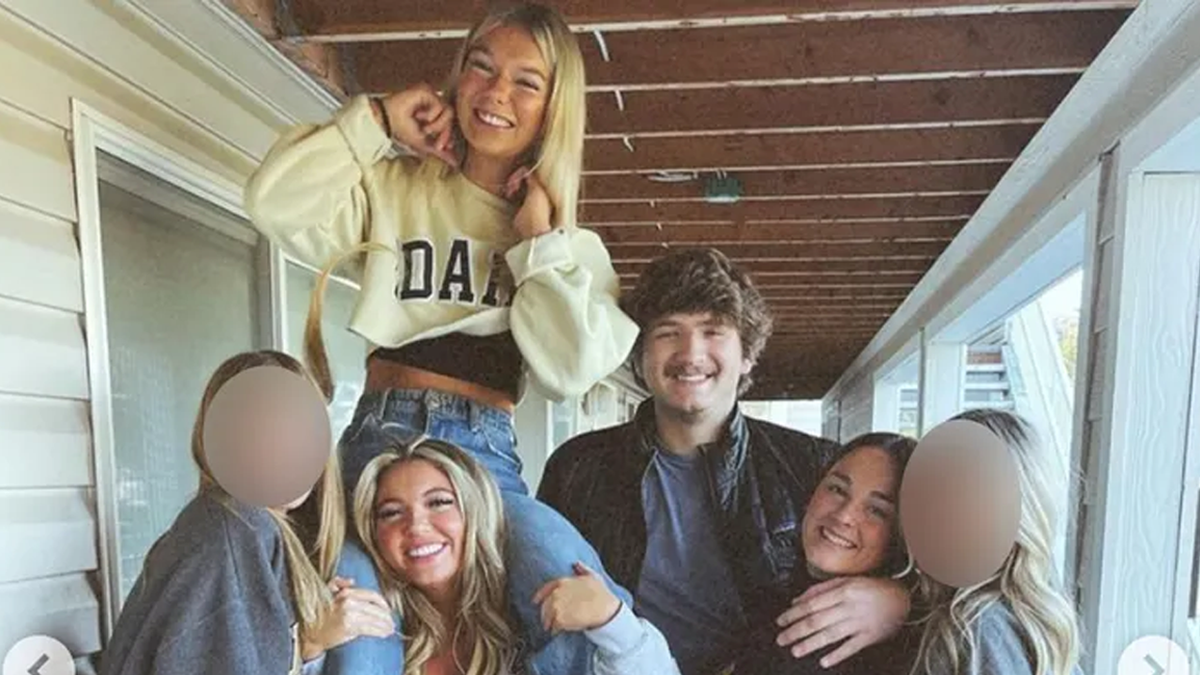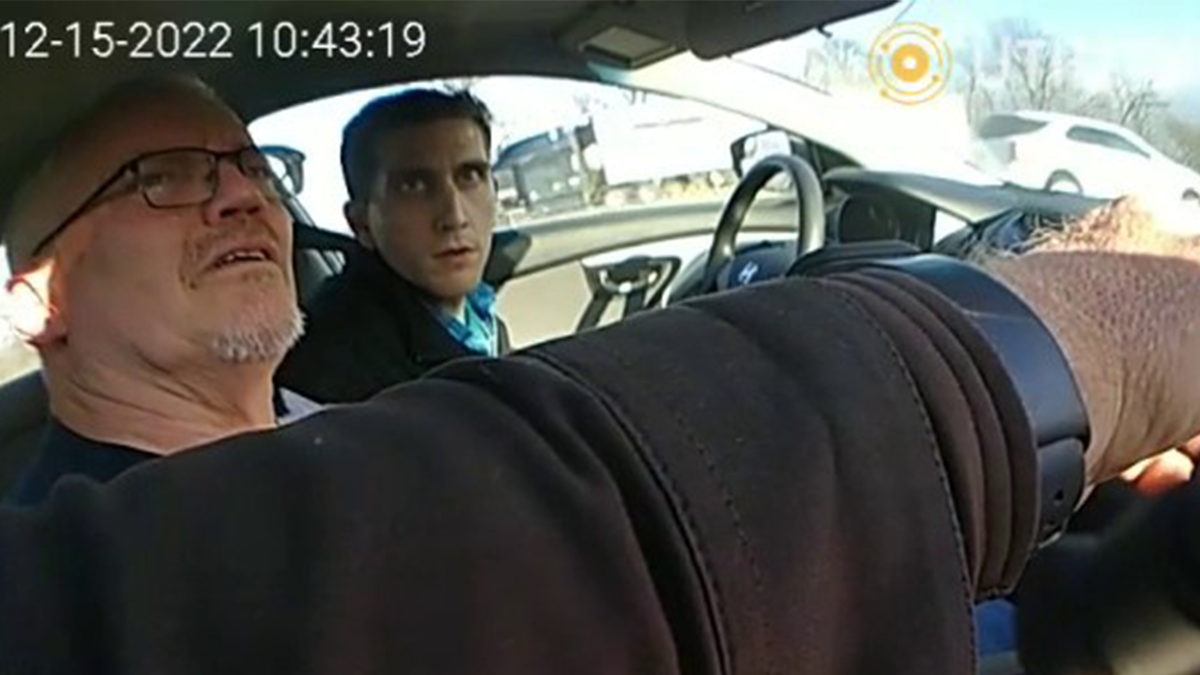Share this @internewscast.com
An Idaho court disclosed that Bryan Kohberger, a convicted murderer, amassed substantial financial support through donations while his legal proceedings continued. This revelation coincided with the third anniversary of the early morning incident where Kohberger, once a criminology Ph.D. student, fatally attacked four university students in a stabbing incident.
Judge Steven Hippler noted that “State’s Exhibit 3, submitted with the prosecution’s reply brief, shows that the Defendant received several hundred donations amounting to $28,360.96 while detained in the jails of Latah County and Ada County.” He added that “many of these contributions were reportedly from the Defendant’s family,” according to the defense team.
The court did not provide a detailed breakdown of the donation sources. It is known, however, that Kohberger’s parents had filed for bankruptcy twice before, once in the mid-1990s and again in 2010, as indicated by court documents.

Bryan Kohberger was present at the Ada County Courthouse for his sentencing on July 23, 2025, in Boise, Idaho, facing charges for the brutal stabbing of four University of Idaho students almost three years prior.
Inmates at Latah County Jail can use commissary funds for “ordering additional food and toiletries” and for accessing telephones and tablets.
The larger Ada County facility offers a more extensive commissary selection, including “candy, snacks, beverages, writing materials, and apparel.” Through a public website, individuals can purchase packages containing items like junk food, “elite protein,” hair care products, and new socks for those incarcerated.
Proceeds from the commissary store in Ada County are used to buy things like chairs, books and even TVs for the jail itself, according to its website.

Madison Mogen, top left, smiles on the shoulders of her best friend, Kaylee Goncalves, as they pose with Ethan Chapin, Xana Kernodle, and two other housemates in Goncalves’ final Instagram post, shared the day before the four students were stabbed to death. (@kayleegoncalves/Instagram)
Jim Leonard, a New Jersey-based defense attorney whose clients have included “Real Housewives of New Jersey” star Teresa Giudice, called Kohberger’s $28,000 in donations “offensive on every level” but said the victims’ families could sue him civilly to block him from profiting off the crime.
“Obviously, you can spend money in the commissary, and you can buy toiletries, you can buy food, you can buy, you know, the prison-approved clothing,” he told Fox News Digital. “But in all candor, that money is also there. That money could be seized, pursuant to, you know, wrongful death litigation by the families or court fees, etc.”
Leonard said the victim’s families could seek an additional civil judgment against him, on top of court-ordered restitution, and his commissary funds would not be protected from that.
Kohberger, who turns 31 next week, is serving four consecutive prison terms of life without parole, plus another 10 years for the murders of Madison Mogen, 21, Kaylee Goncalves, 21, Xana Kernodle, 20, and Ethan Chapin, 20, on Nov. 13, 2022. All but Kernodle were in bed and asleep.
After exhausting his attempts to have the potential death penalty taken off the table before trial, he took a plea deal in July, admitting to the murders but offering no explanation.
The court released his financial information after his lawyers fought back against prosecutors, who sought additional restitution for the victims’ families.

Bryan Kohberger was stopped by Indiana police Dec. 15, 2022 before he was identified as a suspect in the murder of four University of Idaho students. (Hancock County Police Department)
Hippler said some of the additional funds were outside the terms of the plea deal, but he ordered Kohberger to pay Goncalves’ parents and Mogen’s mother roughly $3,000 to split — $1,420 to the Goncalves family and $1,587.79 to Karen Laramie. The sums also carry a 9.125% annual interest rate.
He also found that Kohberger’s defense team was wrong about their claim that he would not be able to profit from future media deals under Idaho’s version of the “Son of Sam” law, which requires him to put any earnings in an escrow account so that the victims’ families have a chance to collect restitution or damages before he can profit.
“Pursuant to subsection three (3) of that statute, any leftover funds in the escrow account must be paid over to a defendant upon a showing that five years have elapsed from the establishment of the escrow account and that no actions are pending against him,” Hippler wrote. “Thus, the statute leaves open the potential for Defendant to receive money from media contracts in the future.”
Leonard, however, said that if he does get a big money media deal, that’s another reason for the victims’ families to sue him.
“He would, in essence, be defenseless,” he said, based on Kohberger’s admission of guilt in the murders.
“But the problem is, people are creative, and they circumvent that,” Leonard warned. “I’ll give you an example: You’re his cousin, and you do some sort of book deal, or you sell some interview or picture, and you get the money, and then what happens is, instead of giving the money to him on his books, you give the money to another inmate in the facility, right? And say, ‘Hey, here’s $1,000. You can use $300 of it. Give $700 to my cousin.’”

















